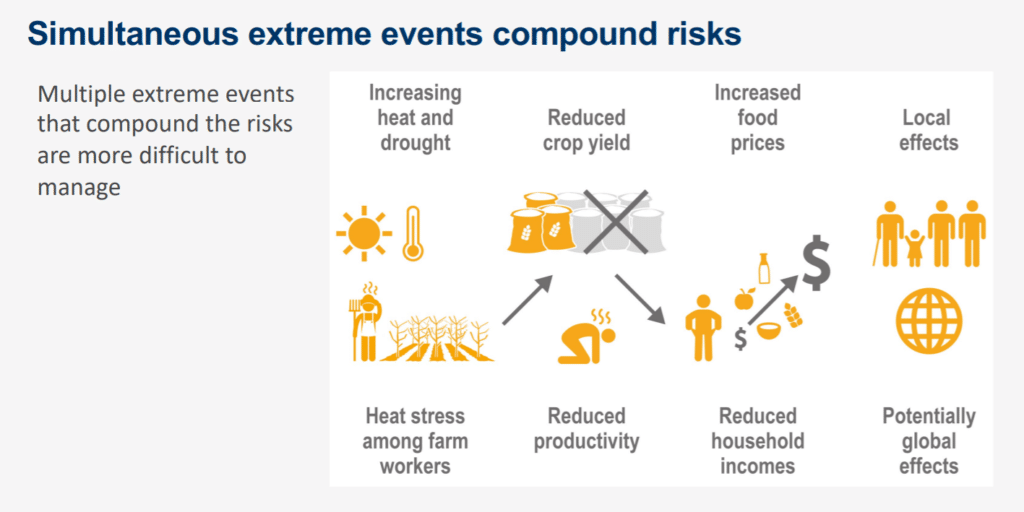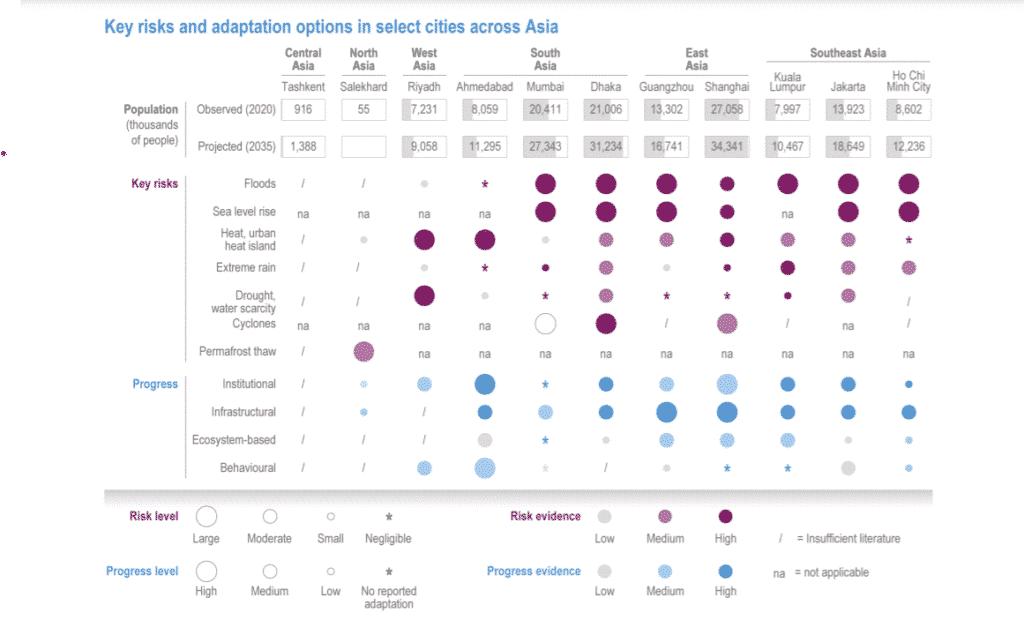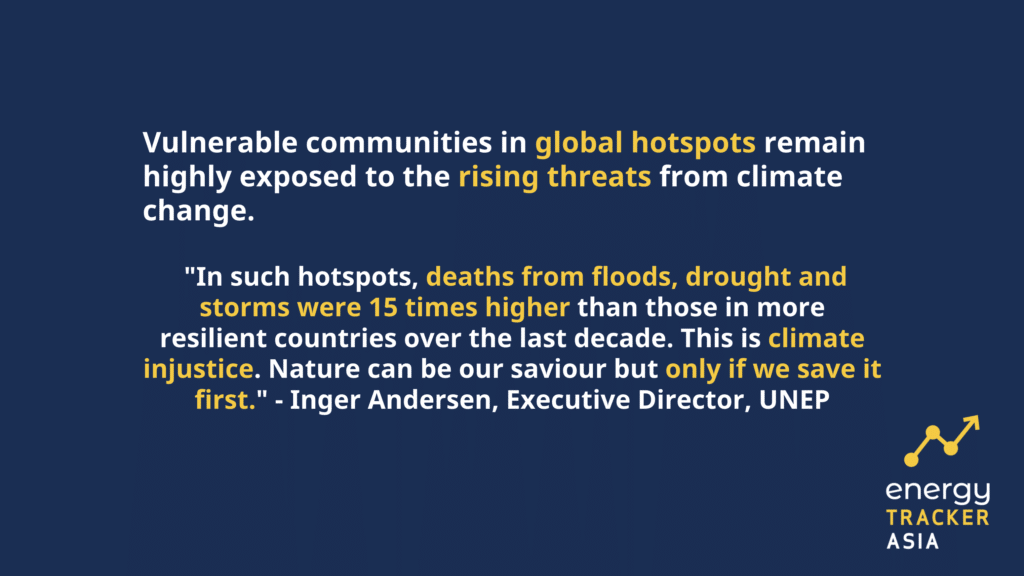IPCC Report: Climate Finance for Adaptation Must Increase for Developing Countries
Source: Flickr
08 March 2022 – by Ankush Kumar
Climate change is now a reality, and it’s high time for the world to find systematic ways of adaptation. Some countries are already facing regular threats in cyclones, droughts, wildfires and floods. However, not all economies can quickly adapt to ongoing and future climate change. As a result, developing countries continue to push the agenda of adaptation in climate finance.
Sixth Assessment Report – Proactive Approaches to Fight Global Warming
In line with this, the latest IPCC Working Group II report stresses the need to accelerate climate adaptation, eradicate injustice and end the use of fossil fuels. It also emphasised the various proactive approaches to deal with future climate catastrophes.
Coal and other Fossil Fuels are Choking Humanity
At a virtual press conference to present the report, UN Secretary-General António Guterres stated that the Intergovernmental Panel on Climate Change (IPCC) report highlights two core findings. The first is that coal and other fossil fuels are choking humanity and causing weather extremes. This means OECD countries must phase out coal by 2030 and all others by 2040.
He called for developed countries, emerging economies, multi-national banks, private finance and other coalitions to end the use of coal. “A prompt well-managed transition to renewables is the only best way to energy security, universal access, and the green jobs our world needs,” said Guterres.
Half of Overall Climate Finance for Adaptation
According to the report, the current rate of climate finance flows to adaptation projects and initiatives are insufficient. Guterres added that for countries facing climate impacts now, adaptation funds need scaling. For example, developmental banks can work with governments to design pipelines for bankable adaptation projects. “I have been pushing to get 50% of climate finance for adaptations,” said Guterres.
At COP 26 in Glasgow, countries agreed to new financial pledges. They concern the so-called adaptation fund totalling over USD 350 million and the least developed countries fund totalling over USD 600 million. Uplifting high-risk communities from climate change impacts with the funds remains a priority.
According to a UNEP report, adaptation costs in developing countries float around USD 70 billion. This could increase to USD 300 billion in 2030 and USD 500 billion in 2050. Several countries already have adaptation plans—however, financing and implementation fall “far short” of their needs.

Climate Change Observing Networks Need Greater Investment
The report further identified 127 risks covering various sectors like health, agriculture, economy, infrastructure and ecosystems. “More than 4 in 10 people in the world live in contexts highly vulnerable to climate change,” said Petteri Taalas, the Secretary-General of the World Metrological Organisation (WMO). Global hotspots include Africa, Asia, South America and small island states.
Taalas added that one of the most potent ways to adapt is to invest in early warning services. Real-time access to observational data is critical at the time of extreme weather events. However, many climate-observing networks have severe gaps. “Only half of the 193 members of WMO have proper weather, climate and hydrological services. This leads to higher human and economic losses,” said Taalas.
According to the World Bank, closing this gap is highly economically efficient. It has the potential to realise at least twenty-six dollars in socio-economic return for every dollar invested in these networks.
Climate Risks and Injustice for Communities in Hotspots
Vulnerable communities in global hotspots remain highly exposed to the rising threats from climate change. The IPCC report estimates that nearly 3.3 to 3.6 billion people will be affected. “In such hotspots, deaths from floods, drought and storms were 15 times higher than those in more resilient countries over the last decade. This is climate injustice,” said Inger Andersen, the Executive Director at UNEP. This was particularly true for indigenous communities. Even if global temperatures peak at 1.5 degrees, the blows would come faster and harder. “Nature can be our saviour but only if we save it first,” added Andersen.
Impact on Asia in a Climate above Two Degrees
However, adaptation cannot prevent all loss and damage. Some natural solutions will no longer work above 1.5 degrees, said Professor Debra Roberts, an IPCC co-chair. For example, millions of people in Asia are already subjected to acute food and water challenges.
Globally, the region contributes 70% of one billion people living in low-elevation coastal zones. In 2019, for instance, Indonesia declared its desire to shift its capital city Jakarta in anticipation of future floods. Coastal cities across Asia such as Shanghai, Chennai, Dhaka and Ho Chi Minh City are also vulnerable to future climate risks.

Apart from floods, many Asian economies are also experiencing hotter summer temperatures. This has led to high energy demand from air conditioners and a lowering of groundwater levels.
IPCC Report and Importance of Political Commitments and Institutional Frameworks
Dr. Hans-Otto Pörtner, the co-chair of IPCC, explained the importance of political commitments and the strengthening of institutional frameworks for effective adaptation. He also highlighted the importance of restoring degraded ecosystems and making them more resilient to climate change. Overall the report strongly stressed that any further delay in concerted global action would miss the brief, rapidly closing window to secure a liveable climate.





